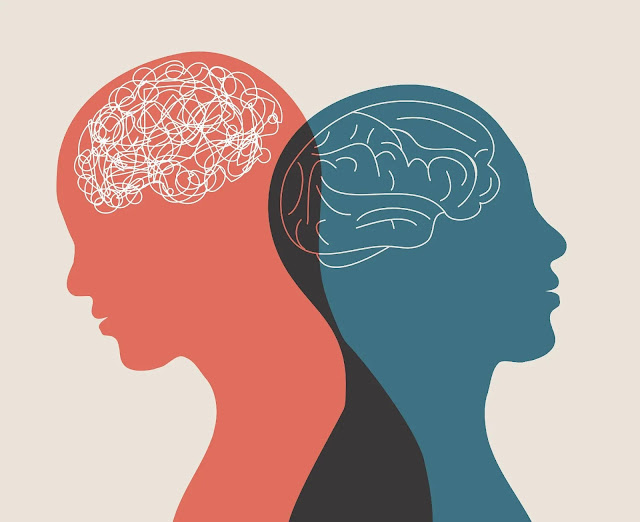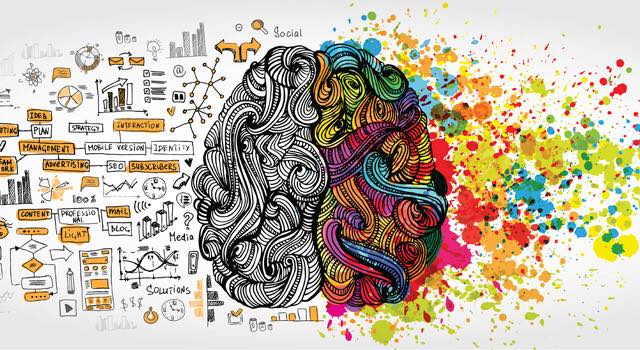Improving Mental Health Access
Hey Everyone! Hope all has been well since we last talked on here. For this blog post, the focus is going to be on mental health and identifying ways to improve access to those services for the most vulnerable individuals. Over the last few years, mental health has become increasingly important throughout our country as a whole on the heels of the Covid-19 Pandemic that overtook the world in 2020 and 2021.
During the height of the pandemic when everything was shut down, it was an extremely challenging time for so many people especially those that either had a mental health ailment or started to feel isolated in a sense away from their family members and friends. At that time, the added unknowns of how the Pandemic would transpire over the short and long-term and the fear being perpetuated by the media, did not do anything to add to the struggle for the individuals identified above.
According to research compiled by the Kaiser Family Foundation, "Over the course of the pandemic, many adults reported symptoms consistent with anxiety and depression, with approximately four in ten adults reporting these symptoms by early 2021, before declining to approximately three in ten adults as the pandemic continued" (Kaiser Family Foundation, 2023). That statistic alone shows how the need for Mental Health services existed prior to the Pandemic fully taking effect and how it seemingly continued throughout even though these was a slight decline for demand for mental health services.
Furthermore, the Kaiser Family Foundation has concluded that "drug overdose deaths have sharply increased - largely due to fentanyl - and after a brief period of decline, suicide deaths are once again on the rise" (Kaiser Family Foundation, 2023). It has been concluded that a lot of these overdose and drug issues have impacted communities where there is a high prevalence of different ethnic groups living together and among the younger population. Essentially, it's easy to see why the United States is currently experiencing a mental health and a fentanyl crisis.
While this blog is about focusing on the inside of the mind of an INFJ, individually I felt as though this topic was very important to address considering the importance of mental health and how often I encourage others to focus on their mental health through various self-care efforts. Given how much INFJ individuals care about others and the world that they live in, I guarantee that many feel the same way I do in wanting to remove barriers to mental health care and find ways to allow more people to access these crucial services when they might need them the most. After all, a big driving force behind the current mental health crisis is that there is a demand for care and a lack of professional care that exists across the board.
Before diving deeper into strategies to improve care for mental health care, I want to focus on my individual story first. Before being laid off last month, I worked as a Clinical Behavioral Health Technician/Care Coordinator for a local community health center here in the Phoenix area. It was a very rewarding and fulfilling job because the role required direct patient care and allowed the entire team to work cohesively, while connecting patients to critical resources and services. However, anyone that works in Behavioral Health, can attest to how demanding the industry is, the impact it has on your personal mental health, and why those things often lead to a high level of burnout among mental health professionals.
To say I was burned out would be an somewhat of an over exaggeration, but it was still there to a degree. The reason why it didn't impact myself to a high degree was because I always made an effort to incorporate self-care as much as I could into my personal life. That included waking up everyday before work at 3:30 in the morning to workout whether doing 30 minutes of weight lifting followed by a mile walk or a three-mile walk/jog followed by 20 minutes of meditation yoga. Depending on the day, would depend on the workout, but the point was to always ensure that I was putting my mind in the right state before going into work and fuel my body with the help of endorphins.
Although I am still unemployed at the moment, I follow the same workout schedule and still incorporate Self-Care Saturdays into my personal routine. Self-Care Saturdays are something that I began doing about three years ago and the goal was to work hard during the week at work, school and doing other things in daily life and then reward myself on Saturdays through hot stone massages, facials, appointments to get my teeth whitened, or going to the salon for a hair cut and wash. In fact, I highly encourage those of you reading this as well as your family members and friends to do something like this every week or as often as you are able to. You have to take care of yourself to perform at your highest level in every facet of life!
Additionally, last summer I began getting into meditation through the use of crystals, candles, and the archangels and started seeing a Psychic. The Psychic and I met in person every Saturday for several months and then would communicate over the phone during the week. It really helped myself get over traumatic events of the past and focus on this journey of self-awareness and discovery at a deeper level. Furthermore, at the beginning of this calendar year, I began going to Counseling myself. Yes, even mental health professionals need Counseling at times! Again, it wasn't necessarily due to being burned out. Rather, it was nice to have an outlet to talk to every week about professional and personal life matters.
Now that I am no longer working, I am unable to continue Counseling due to insurance issues even though it would be highly beneficial especially during this time of transformation and self-awareness. So to bring all of this back into the original topic of this blog about improving mental health access, the focus needs to begin with individuals such as myself who might not have access to insurance to continue mental health services when they are needed the most. Yes, all of the self-care activities outlined above help to a degree. However, having a Counselor who is a non-biased, third party to talk to is equally as important especially when it comes to mental health education.
Besides improving the insurance barrier to mental health services, here are a few other strategies that I feel could greatly improve mental health access.
- Encouraging companies to provide mental health services to employees. - This is one area that has seen a lot of beneficial growth over the last few years in regard to employers providing their employees with access to mental health services through Employee Assistance Programs. However, it needs to continue and continue at an even higher level than it does now. Often times, employers will offer this to employees, but will limit it to 6-8 Counseling sessions which is simply not enough for some individuals. Additionally, companies need to embrace policies that enable employees to take leaves of absence for mental health purposes or incorporate a yearly sabbatical for a week or two that includes all employees of all levels throughout the organization.
- Improving community care access and resources. - In order to accomplish this, our country needs to get back to the grassroots that this country was founded on which involved local communities and neighborhoods working together. Instead of everything being focused around corporate principles, the notion here is to improve health care access in communities through the use of community health centers especially in low-income, ethically diverse areas of the country. These individuals and communities typically have the hardest time accessing both personal and mental health services.
- Providing free, online mental health courses and seminars. - On the heels of the Covid-19 Pandemic, a focus has been put on increasing the amount of access that individuals have to different resources online regarding personal mental health matters. However, a database that provides resources, courses and seminars to individuals who cannot access mental health services is desperately needed. If something like this already exists, then it should be promoted at a higher level to allow individuals who might not know about it, to get access. This service should be free through the use of sponsorships from different healthcare organizations to improve accessibility even more.
- Improving mental health services for children and teenagers. - Adults typically have a much better time identifying symptoms of Anxiety, Depression and other mental health ailments compared to children and teenagers. Therefore, an emphasis needs to be put on school districts creating programs for children, teenagers and their families to promote mental health, self-care and resources for those youth that might need services the most. These programs should focus on the importance of child and parent relationships, ways that parents can help their children through childhood and adolescent development, and peer-to-peer relationships. While many schools are scaling back funding, this is one area that should not be impacted by those budget cutbacks at any level.
In the end, improving mental health access is something that is not going to improve overnight or at the flip of a switch. Rather, it is going to take a lot of time and effort from mental health professionals, experts in the medical world, mental health patients, community groups and organizations, and health care organizations alike working together cohesively to address the barriers that exist in this area. As an INFJ, this is something that I am personally passionate about and want to encourage other individuals to focus on as much as possible. Positive change in the world always feels good for those that identify as an INFJ and this is certainly one of those areas.
As the blog continues to evolve, a deeper focus will take place on these efforts. However, it is my hope that this is a good stepping stone towards improving public awareness and knowledge about the shortfalls as well as barriers that currently exist within mental health care access. For those reading this, I encourage you to take this information and try to find a way to help someone you know in your life who might need mental health care, to get access to the care they need. After all, it takes a village working together to change some things in life.
Outside of that, take care for now and keep shining your light for the rest of the world to see. Authenticity always shines through during the good, bad and indifferent times in life!
Reference
Kaiser Family Foundation. (2023). The implications of covid-19 for mental health and substance use. Retrieved from: https://www.kff.org/coronavirus-covid-19/issue-brief/the-implications-of-covid-19-for-mental-health-and-substance-use/.




Comments
Post a Comment